Google Ads has unveiled a cutting-edge feature that allows advertisers to automatically generate ads using Large Language Models (LLMs) and generative artificial intelligence (Gen AI).
The announcement was made by Dan Taylor, Google’s Vice President of Global Ads, during his recent visit to India. This innovative application empowers marketers to create creative campaign workflows based on specific business prompts.
With the introduction of this new tool, advertisers and businesses can now effortlessly auto-generate advertisements on the Google Ads platform. By leveraging Large Language Models (LLMs) and the power of generative artificial intelligence (Gen AI), Google Ads can craft campaign workflows based on the prompts provided by marketers, Economic Times reported.
Taylor highlighted the remarkable capabilities of the system, stating, “It learns from the advertisers’ landing pages, identifies high-performing queries, and draws inspiration from approved headlines to create entirely new and engaging creatives.”
The impact of AI on marketing and sales has been demonstrated in a McKinsey study, which reported the substantial revenue effects of AI implementation.
During the Google I/O event held on May 10, Taylor discussed the introduction of Gen AI tools such as Performance Max, which have been embraced by marketers and advertisers.
Prominent brands like Myntra, Samsung, HDFC, and Tata AIG have already witnessed up to 18 percent higher conversion rates by incorporating AI into their marketing strategies.
Performance Max is a comprehensive solution that combines various AI technologies from Google, including bidding, budget optimization, audience targeting, creative generation, attribution, and more.
Amid growing concerns about privacy regulations worldwide, Google reiterated its commitment to user privacy. A survey conducted across 11 Asia-Pacific markets, involving 16,500 individuals, revealed that 8 out of 10 consumers consider online privacy and data security to be of paramount importance.
Notably, 70 percent of these consumers would discontinue engagement with a brand if they perceive a violation of their trust regarding data privacy.
In response to the impending Digital Personal Data Protection Bill introduced by the government, Google introduced enhanced privacy features, such as Privacy Sandbox for web and Android. Simultaneously, the company introduced generative capabilities for its ads business, aiming to uphold privacy while empowering marketers.
Regarding the ongoing discussions with the EU Commission, Taylor assured that Google is engaging “constructively” to address concerns regarding their ads business and avoid any conflicts of interest between consumers and advertisers.
Taylor shed light on Google’s long-standing commitment to AI innovation, stating, “While public discourse on AI may be relatively new, we’ve been pioneering AI and developing tools to assist consumers and businesses for over a decade.”
The company’s recent unveiling of AI tools during the annual Google I/O conference demonstrated a clear focus on scaling small businesses through innovative marketing solutions.
Taylor expressed enthusiasm about supporting Indian businesses in their quest to embrace digital marketing with AI-powered tools that deliver optimal outcomes.
One such tool, Google Product Studio, empowers businesses to create customized product images without the need for costly photoshoots.
In a rapidly evolving landscape, Taylor emphasized that AI tools align with the speed of customer demands. As the internet economy is projected to grow sixfold, reaching USD 1 trillion by the next decade, businesses will find themselves competing not with AI, but with other marketers who effectively leverage AI technology.
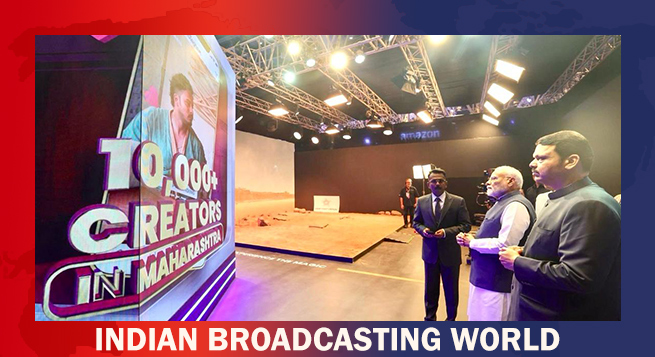 MIB to unveil M&E sector statistical handbook today at WAVES
MIB to unveil M&E sector statistical handbook today at WAVES 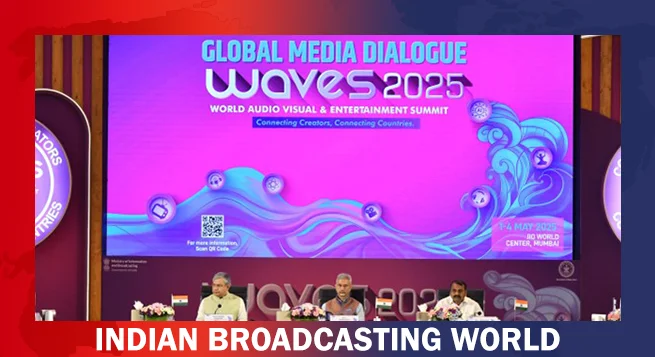 WAVES 2025: Media dialogue backs creativity, heritage & ethics in AI Era
WAVES 2025: Media dialogue backs creativity, heritage & ethics in AI Era 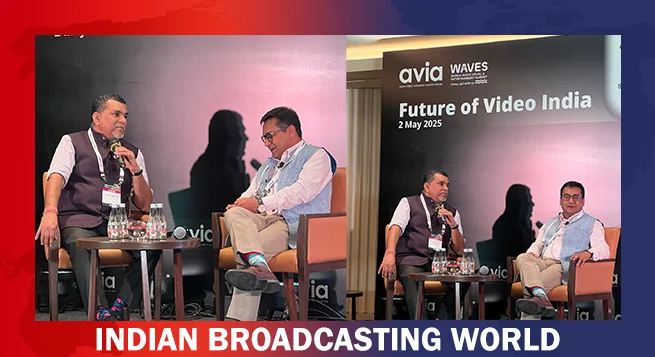 Pay TV leaders chart course for India’s linear TV in digital age
Pay TV leaders chart course for India’s linear TV in digital age 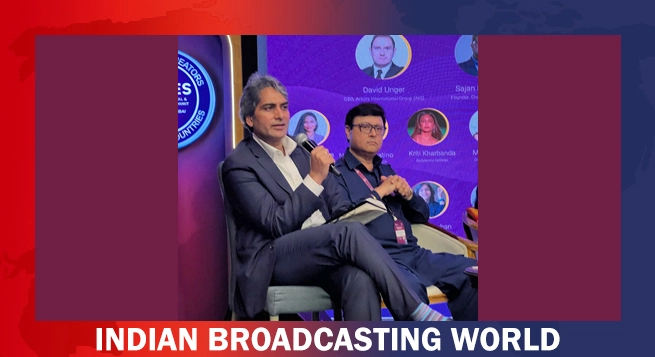 Sudhir Chaudhary announces new show for DD News, says “Good content still has a place” at WAVES 2025
Sudhir Chaudhary announces new show for DD News, says “Good content still has a place” at WAVES 2025 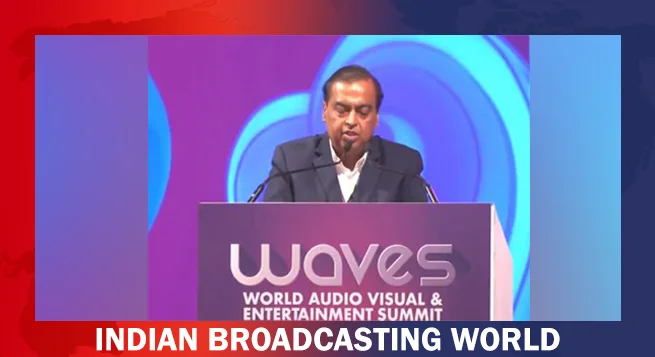 India can lead global entertainment revolution: Mukesh Ambani
India can lead global entertainment revolution: Mukesh Ambani 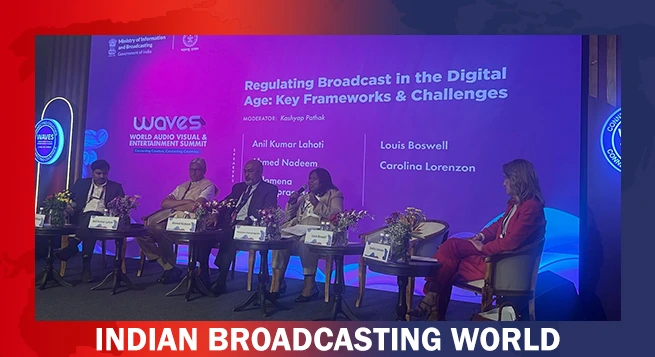 TRAI chief not in favour of separate rules for OTT, legacy b’casters
TRAI chief not in favour of separate rules for OTT, legacy b’casters  ‘KanKhajura’ start streaming on Sony LIV from May 30
‘KanKhajura’ start streaming on Sony LIV from May 30 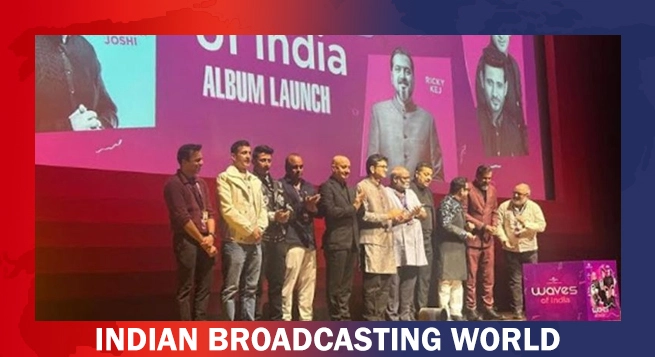 Koyal.AI debuts at WAVES 2025, set to revolutionise music videos with GenAI
Koyal.AI debuts at WAVES 2025, set to revolutionise music videos with GenAI  Zee Cinema to premiere ‘Pushpa 2: The Rule’ on May 31
Zee Cinema to premiere ‘Pushpa 2: The Rule’ on May 31 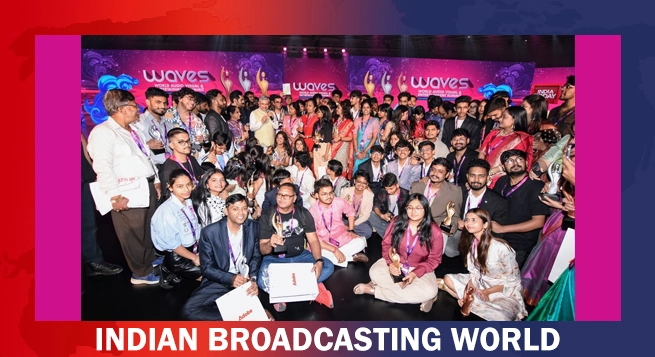 ‘Create in India Challenge’ S1 honours global talent at WAVES
‘Create in India Challenge’ S1 honours global talent at WAVES 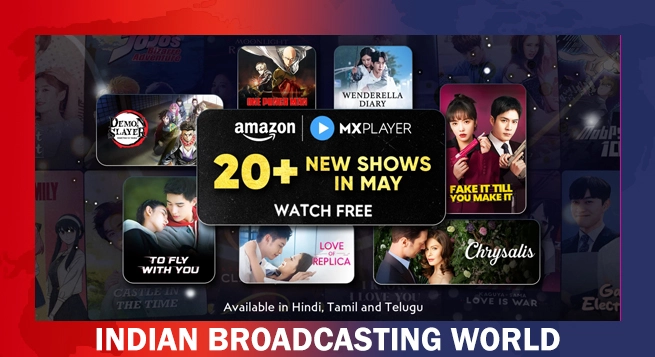 Amazon MX Player adds 20+ dubbed international titles
Amazon MX Player adds 20+ dubbed international titles 








